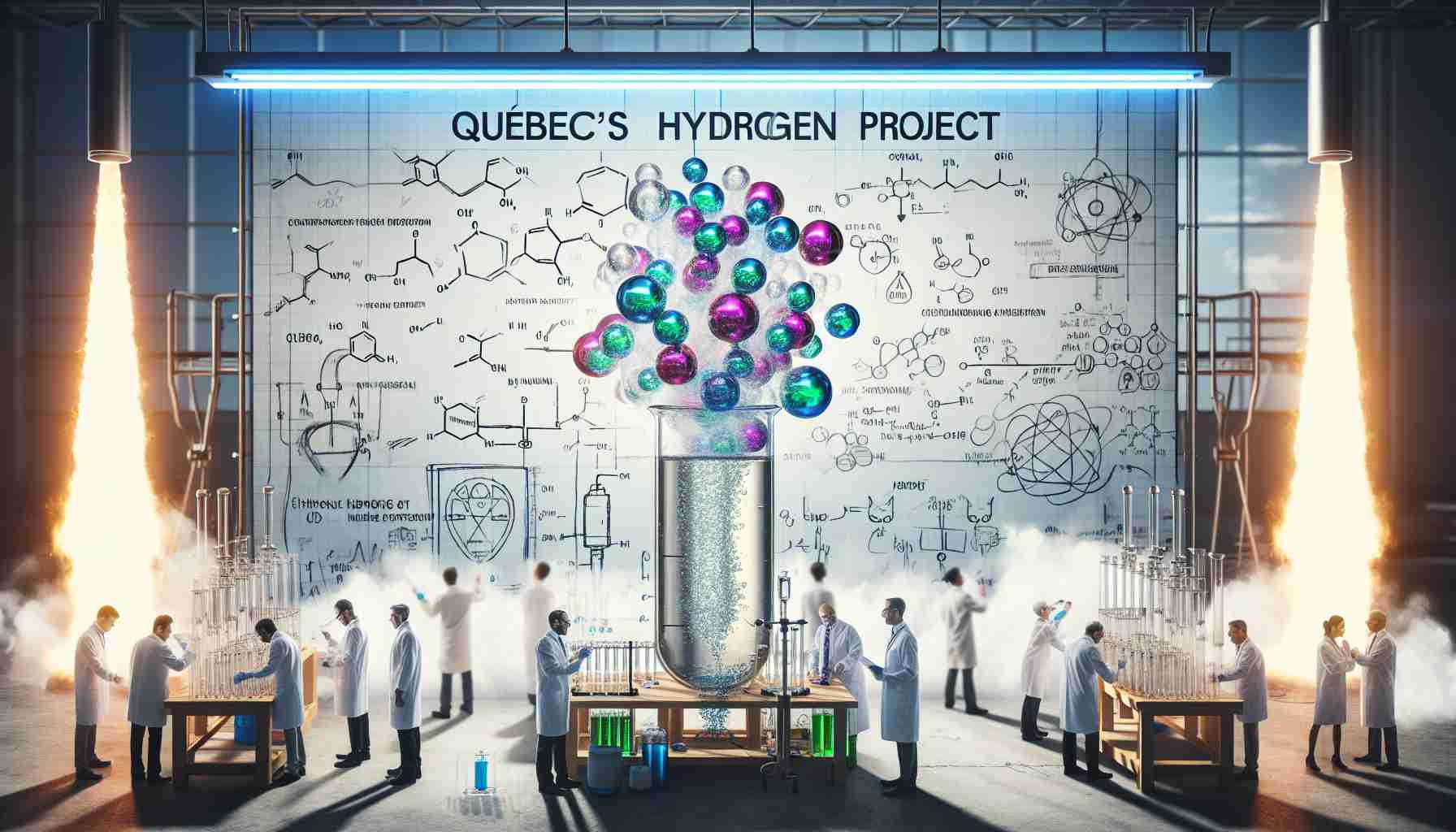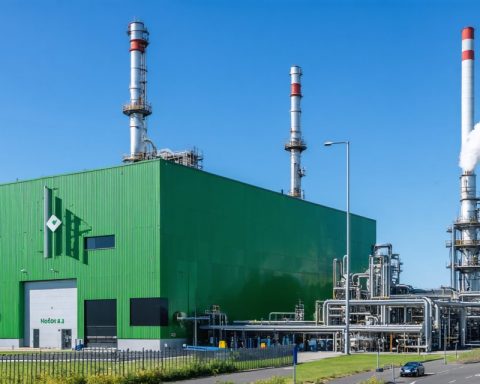St-Bruno-de-Guigues, Quebec – Québec Innovative Materials Corp. (CSE: QIMC) has made a stunning discovery at its Hydrogen project. Recent tests conducted in shallow monitoring wells have recorded astonishing hydrogen concentrations, with values soaring to over 7000 parts per million (ppm). This significant finding, observed at shallow depths, suggests a robust supply of hydrogen gas from deep geological sources.
The successful testing took place against the backdrop of extremely cold winter conditions, showcasing the resilience of QIMC’s geological models. The findings also emphasize the essentially pure nature of the hydrogen discovered, with minimal traces of harmful gases like carbon dioxide and methane, underlining environmental benefits.
As part of their ongoing efforts, QIMC recently established a series of shallow monitoring wells in areas highlighted during earlier surveys. These wells will serve multiple purposes, including monitoring hydrogen dynamics and understanding groundwater influences on hydrogen deposits.
Drilling operations included systematic rock core sampling to analyze the properties of the ancient sedimentary rocks present in the region. Concurrent electrical surveys aimed to confirm the geological integrity and gas permeability of the area’s sedimentary units.
This monumental breakthrough not only marks a milestone for QIMC but also positions Quebec as a leader in sustainable hydrogen energy development, potentially paving the way for innovative energy solutions in the future.
The Future of Sustainable Hydrogen: A Step Toward Global Change
The recent findings from Québec Innovative Materials Corp. (QIMC) illustrate a pivotal moment not just for the hydrogen sector, but also for global energy dynamics. With hydrogen energy emerging as a cornerstone in the transition away from fossil fuels, the ability to source high concentrations of pure hydrogen economically and sustainably could revolutionize our approach to energy consumption.
Beyond just a technological breakthrough, this discovery holds significant societal implications. As nations grapple with climate change and energy security, the potential for Quebec to emerge as a leader in the hydrogen economy could encourage regional cooperation and investment in alternative energy innovations. This can spark a cultural shift towards more sustainable practices and heightened public awareness of renewable energy benefits.
Environmental sustainability also stands at the forefront. The negligible presence of harmful gases in the hydrogen production process—especially in a region that has previously relied on traditional energy sources—signals a move toward cleaner alternatives. As governments and industries globally seek to meet net-zero targets, the implications for greenhouse gas emissions could be profound.
Future trends suggest an increasing global reliance on hydrogen, driving demand for robust production methods and supply chains. As research and investment continue, we may witness the emergence of hydrogen hubs, which will integrate into wider economic strategies, influencing not just local but international markets profoundly. This bold step by QIMC could resonate through multiple layers of industry and environment, shaping the contours of a sustainable future.
Breakthrough in Hydrogen Discovery: Quebec Is Leading the Charge Toward Sustainable Energy
Introduction
Québec Innovative Materials Corp. (CSE: QIMC) has recently made remarkable strides in hydrogen production that could significantly alter the landscape of sustainable energy. With hydrogen concentrations exceeding 7000 parts per million (ppm) in their hydrogen project located in St-Bruno-de-Guigues, these findings underscore the potential for clean energy sources derived from underground reservoirs.
Innovative Discoveries and Their Implications
The astonishing hydrogen concentrations were identified during advanced testing in shallow monitoring wells, which were strategically established based on preliminary geological surveys. The results not only indicate the availability of hydrogen but also hint at its purity. The presence of minimal impurities, such as carbon dioxide and methane, presents a strong case for its suitability as an environmentally friendly energy source.
Features of the Project
– Shallow Monitoring Wells: QIMC has deployed a network of monitoring wells that allow for real-time assessment of hydrogen dynamics, providing vital data on how groundwater and other geological factors influence hydrogen deposits.
– Rock Core Sampling: To better understand the geological environment, systematic rock core sampling has been undertaken. This will help in assessing the properties of the sedimentary rocks that form the potential reservoirs for hydrogen gas.
– Electrical Surveys: Concurrent electrical surveys are being conducted to ensure the geological integrity and gas permeability of sedimentary units, crucial for confirming the viability of commercial hydrogen extraction.
Pros and Cons of Hydrogen Energy
Pros:
– Environmental Benefits: Hydrogen is a clean fuel, producing only water vapor when burned and contributing to lower greenhouse gas emissions.
– Energy Security: Utilizing local hydrogen resources can reduce dependence on fossil fuel imports.
– Economic Opportunities: Developing a hydrogen economy can create jobs in extraction, processing, and selling hydrogen.
Cons:
– Infrastructure Challenges: Transitioning to hydrogen requires significant investment in infrastructure for production, storage, and delivery.
– Technology Development: While advancements are promising, some technologies for efficient hydrogen extraction and use are still emerging and may require time to mature.
Market Trends and Future Insights
As global demand for renewable energy continues to rise, regions like Quebec could become essential players in the hydrogen market. This groundbreaking discovery by QIMC places Quebec in an advantageous position to lead efforts not only in local hydrogen production but also in exporting technology and knowledge to other regions investing in clean hydrogen energy.
Limitations and Challenges
While the findings are promising, there are challenges ahead. Scaling up from well testing to commercial hydrogen production poses operational hurdles, including ensuring the purity of the hydrogen, managing potential environmental impacts, and developing scalable technologies to extract and utilize this resource efficiently.
Conclusion
Quebec’s advancements in hydrogen research position the province as a hub for innovative sustainable energy solutions. QIMC’s goals align with global trends toward cleaner energy sources, indicating a dynamic shift toward a hydrogen-based economy in the future.
For more insights into renewable energy advancements, visit QIMC.
















